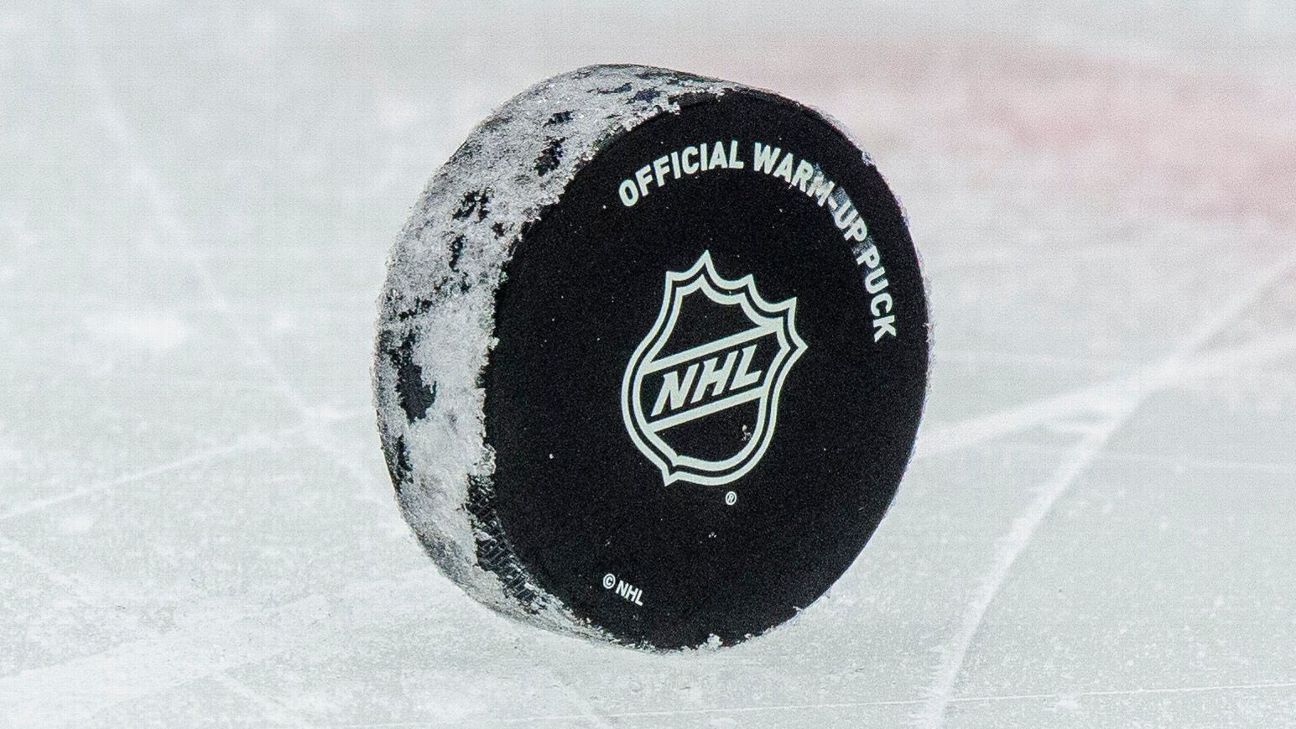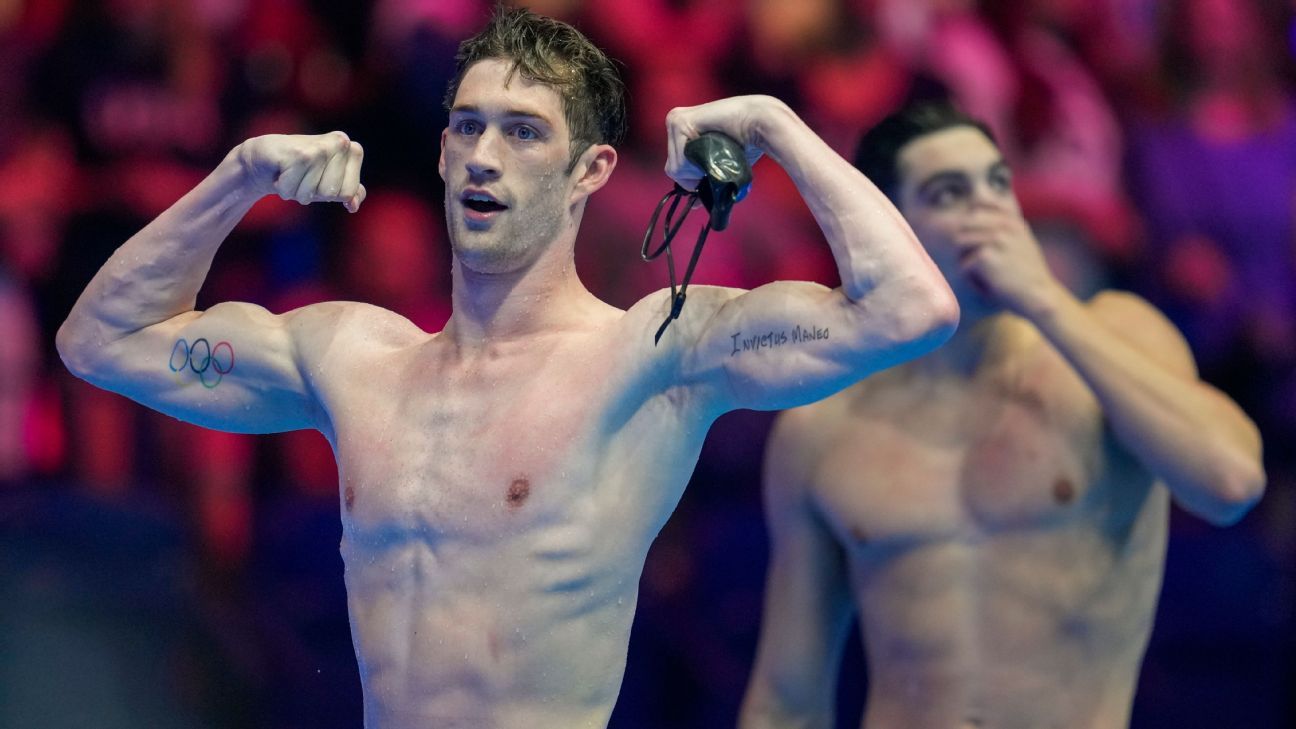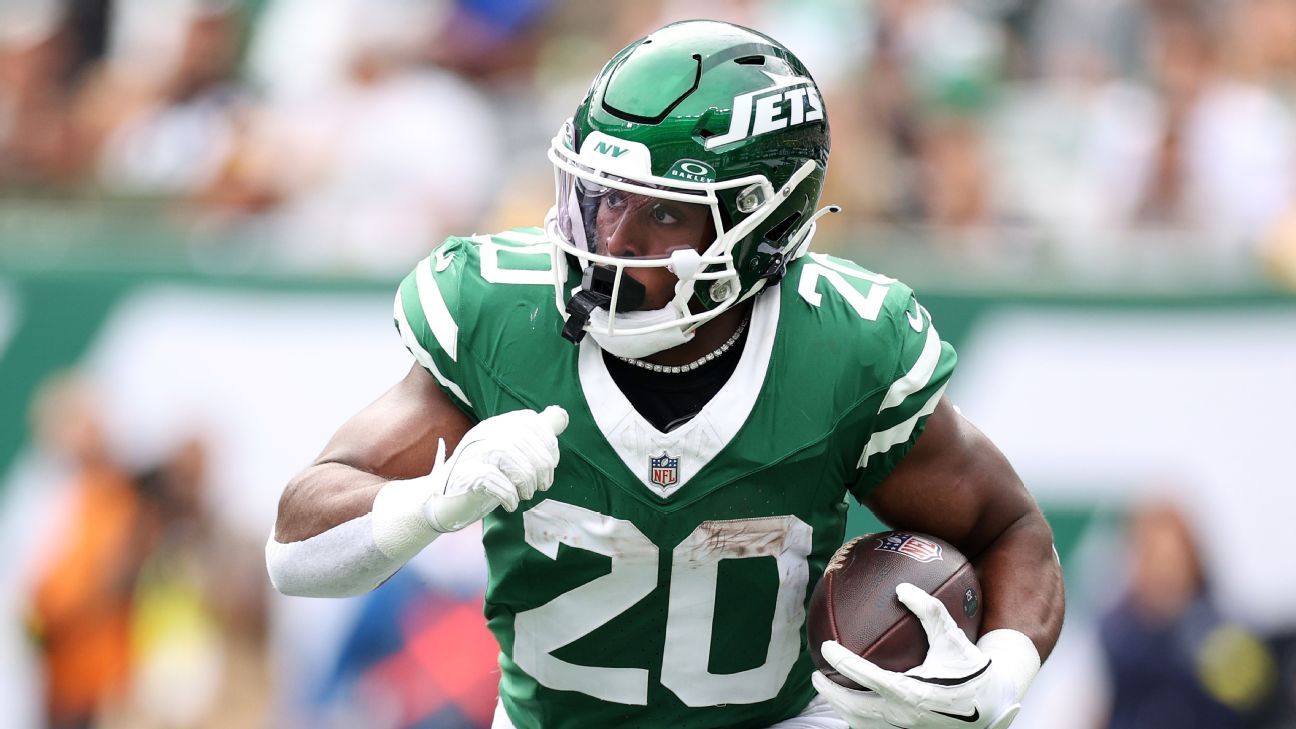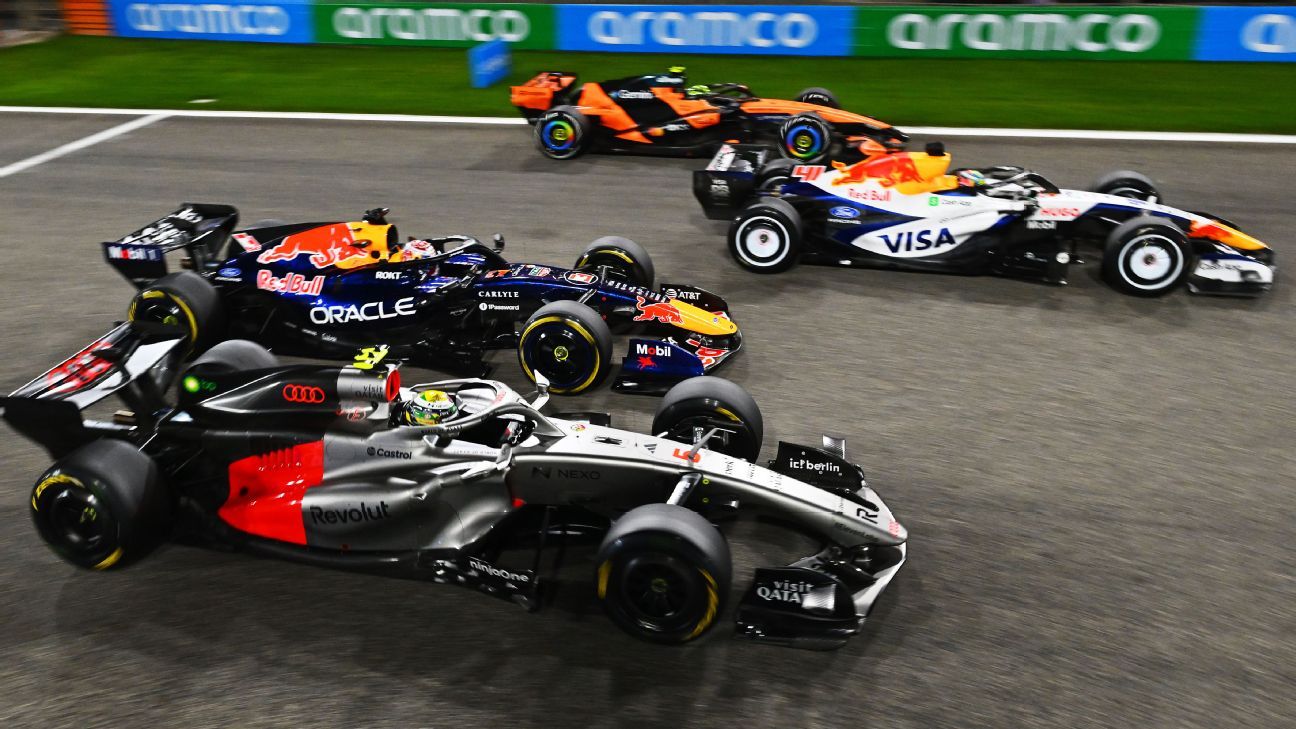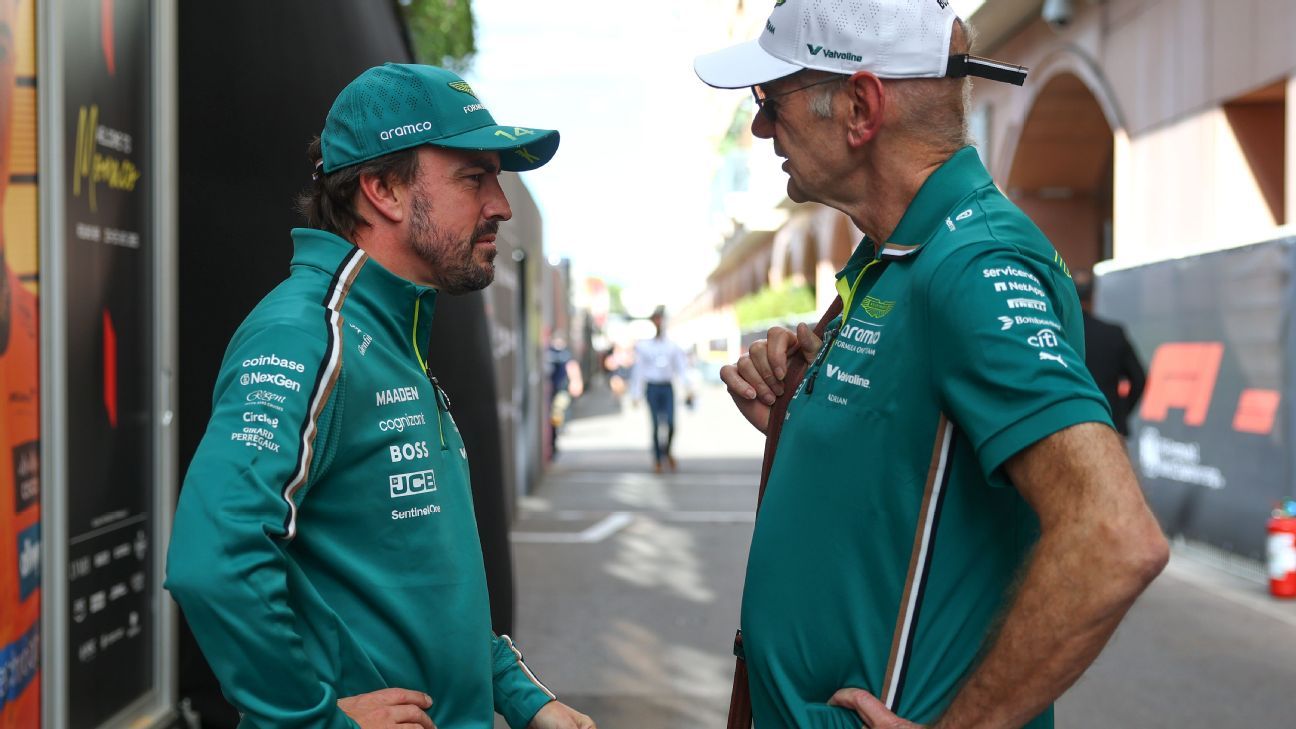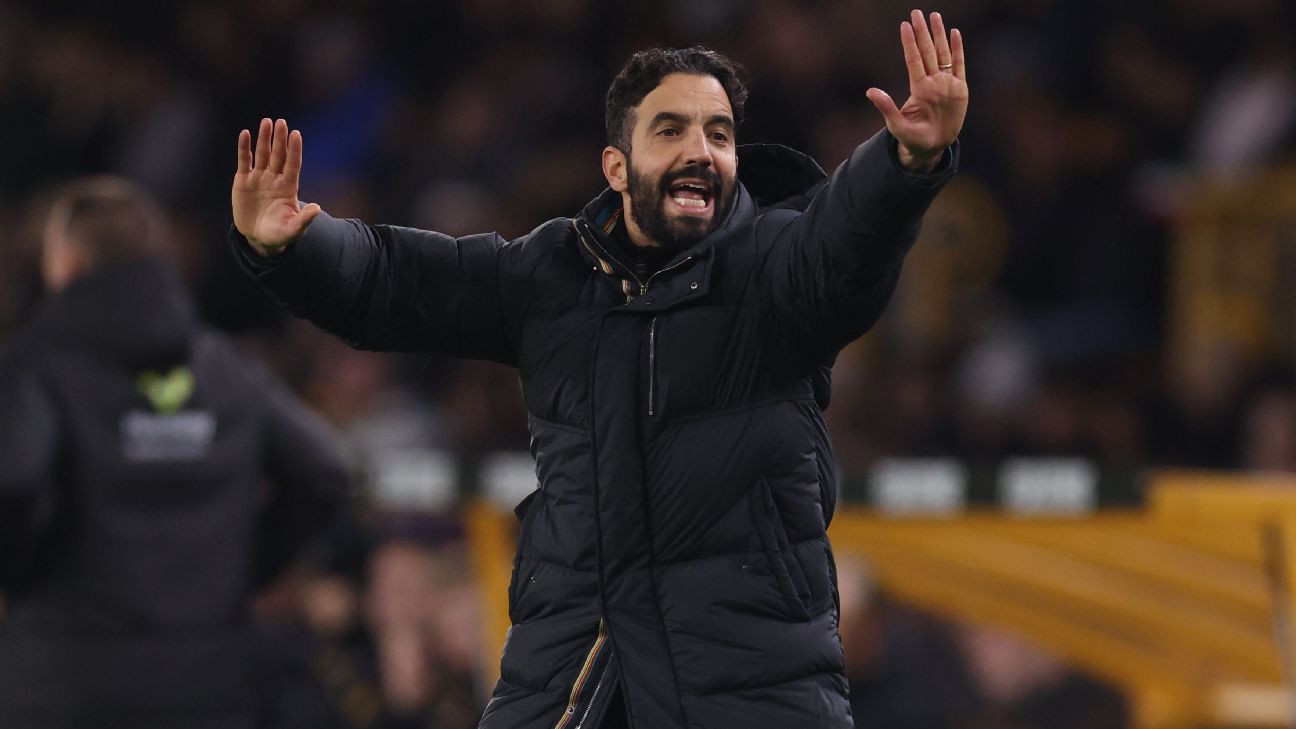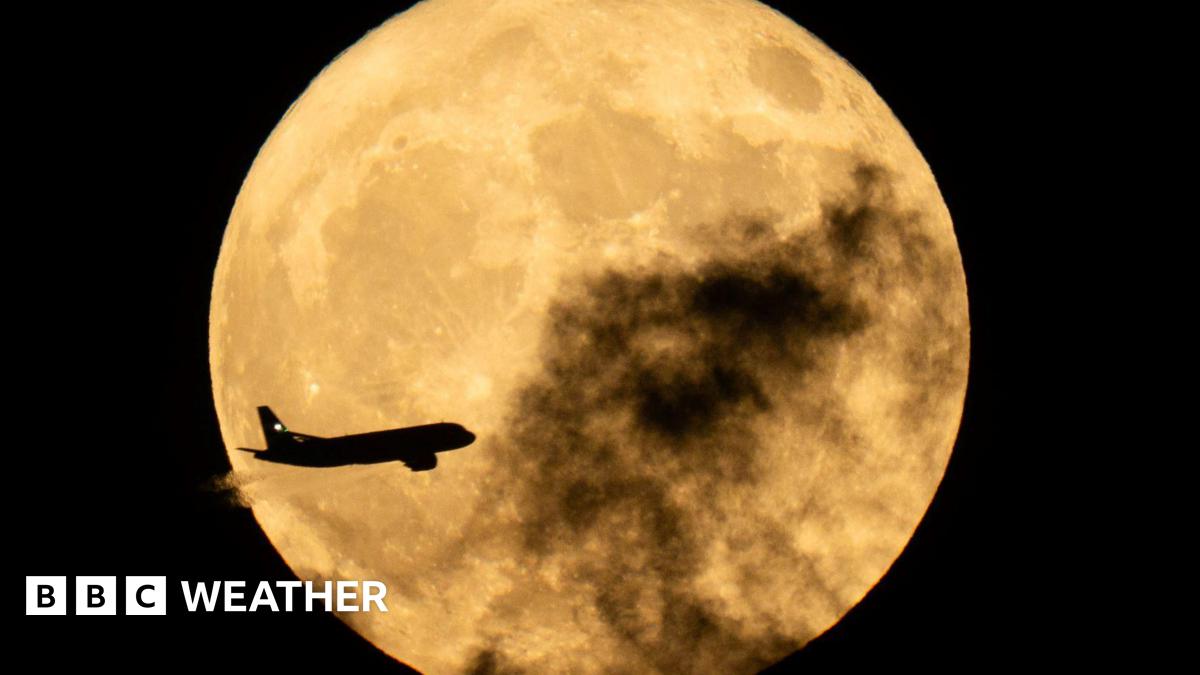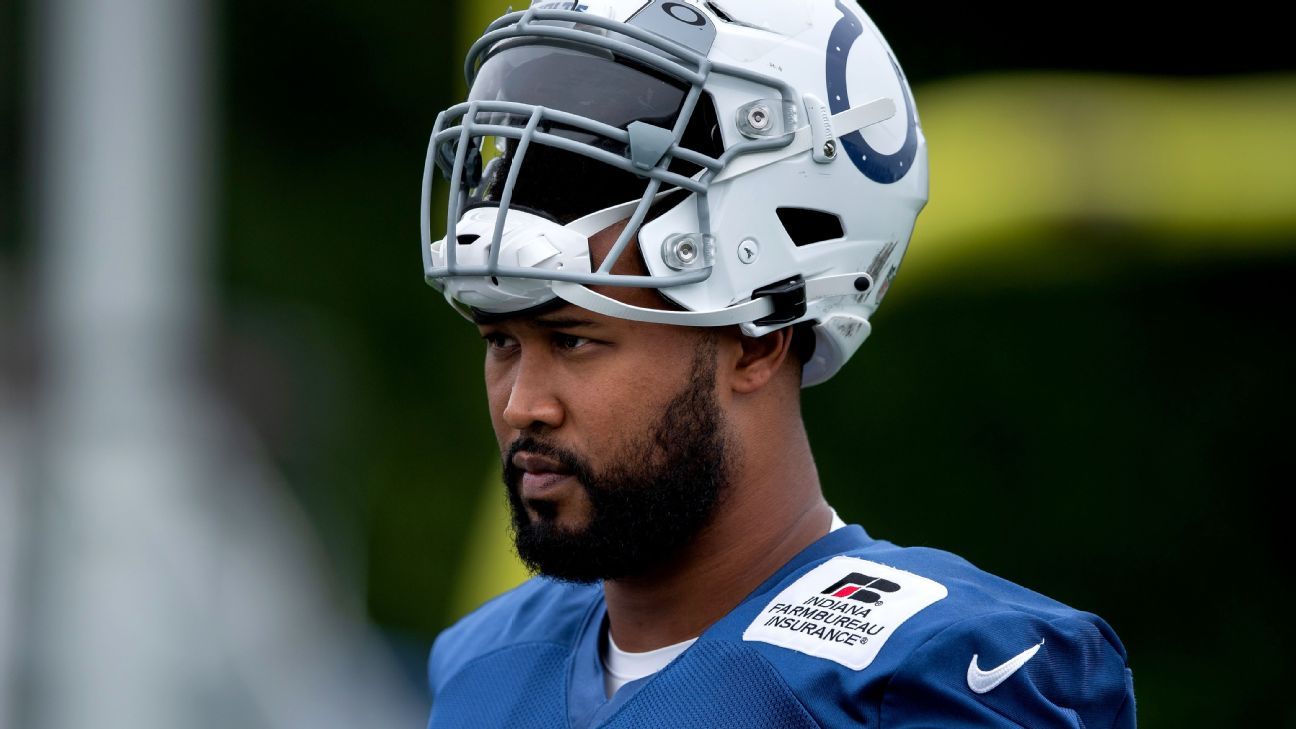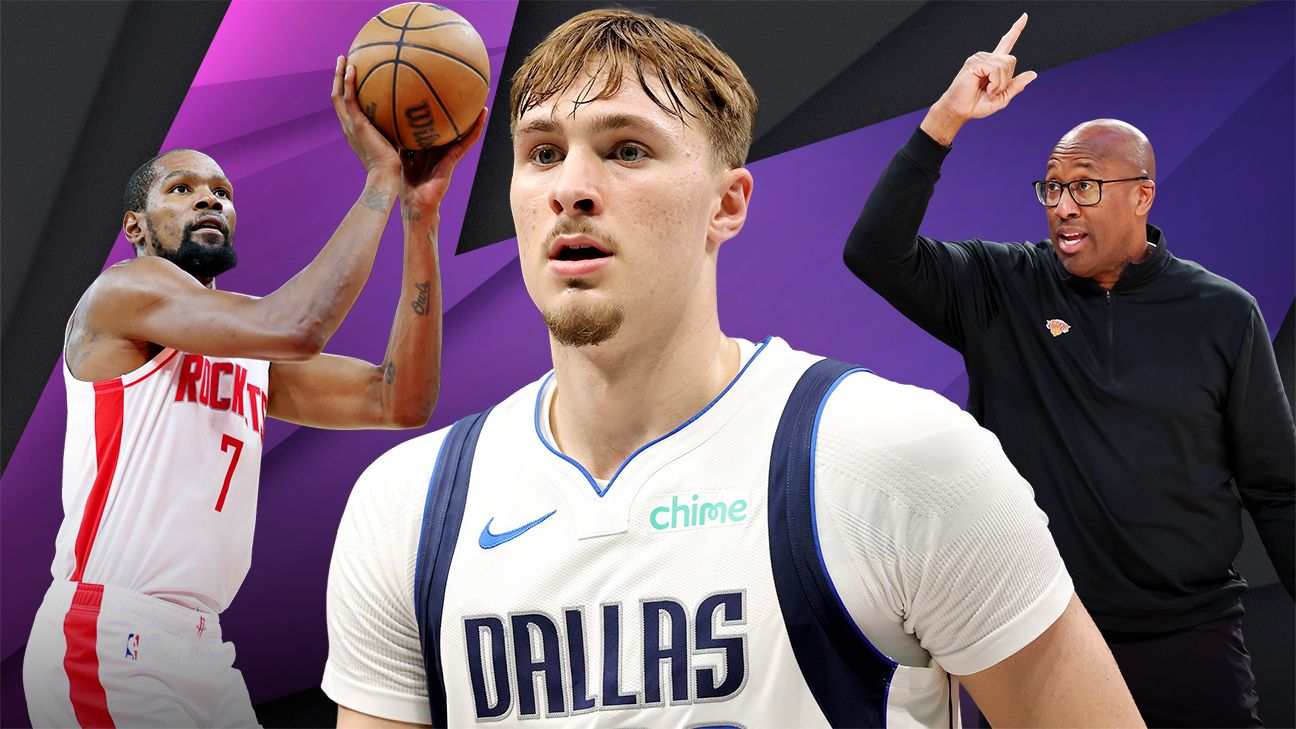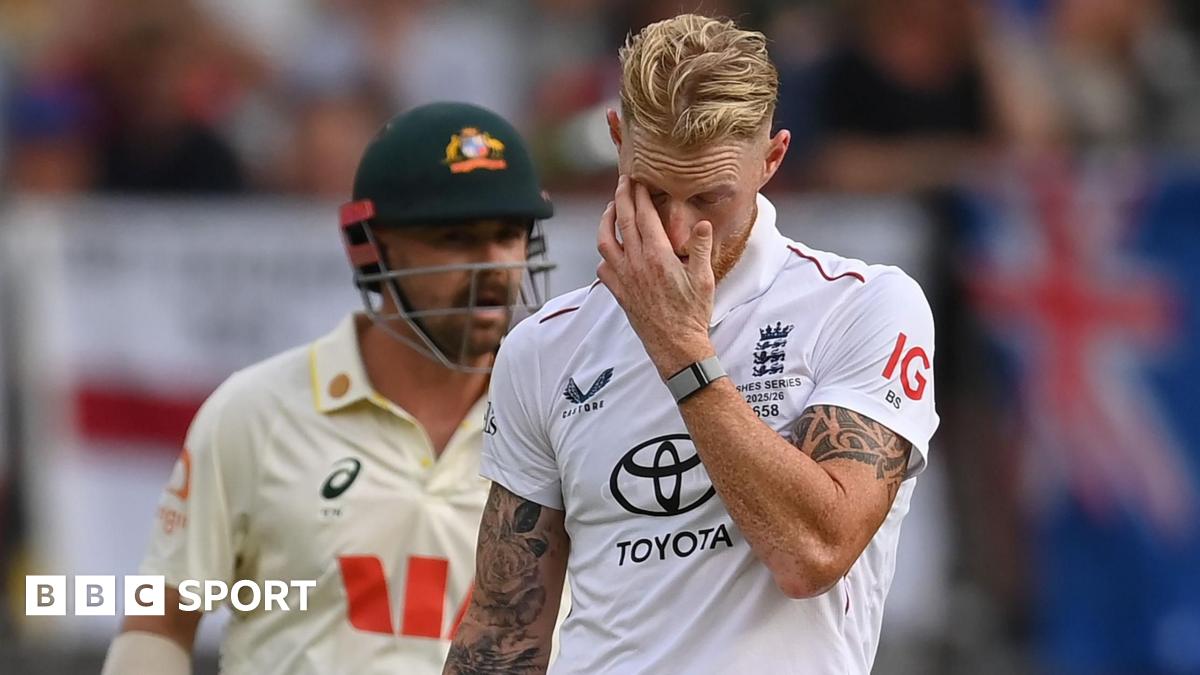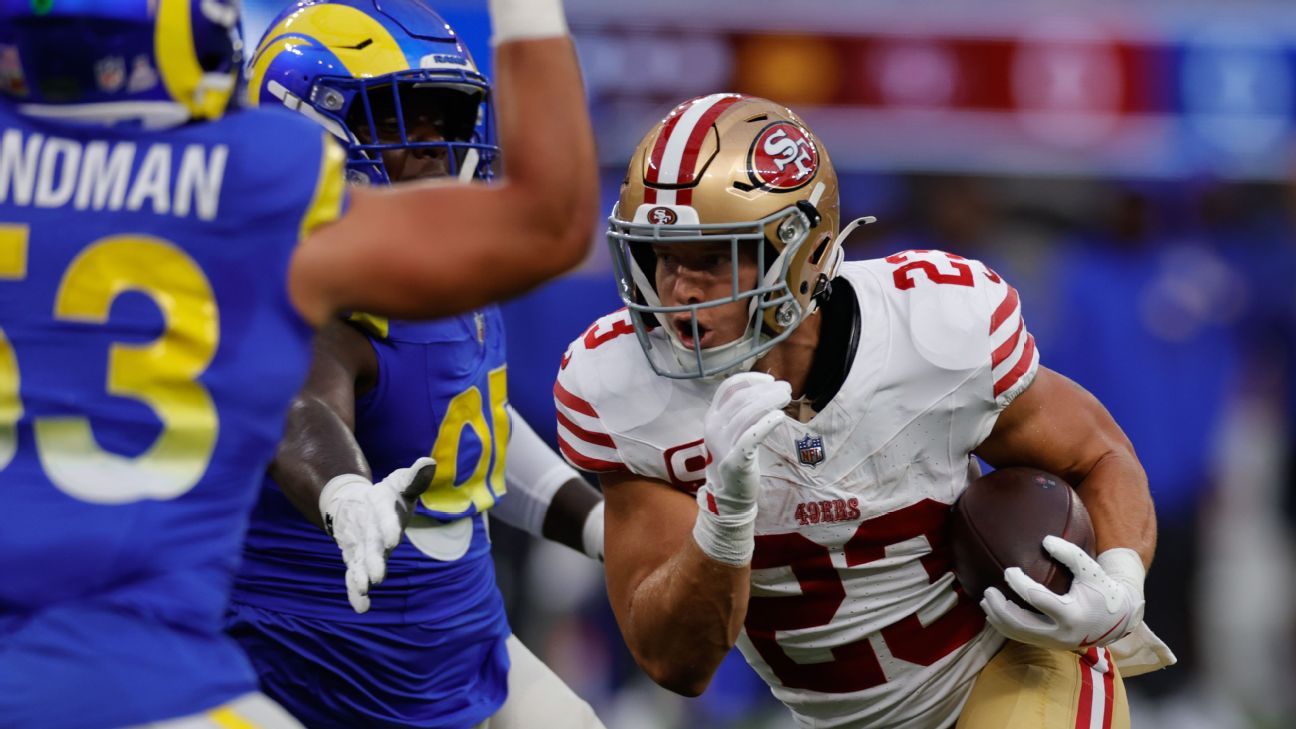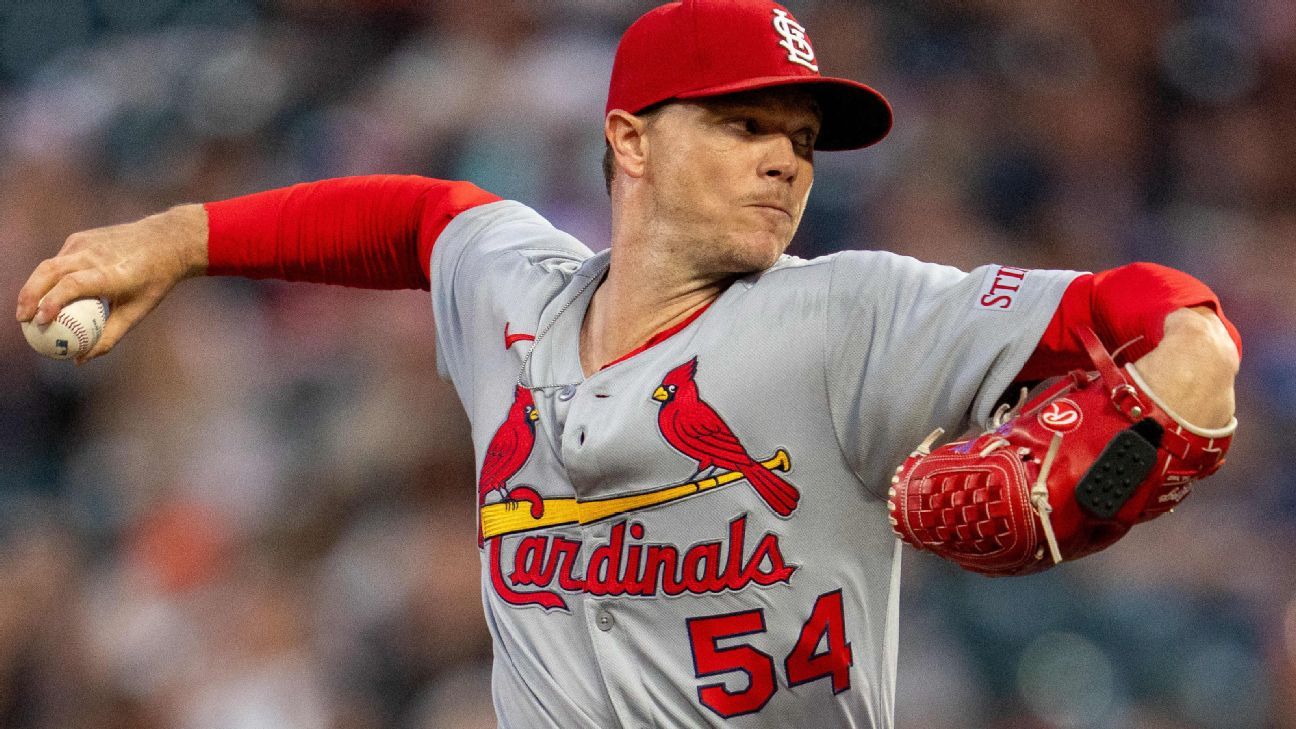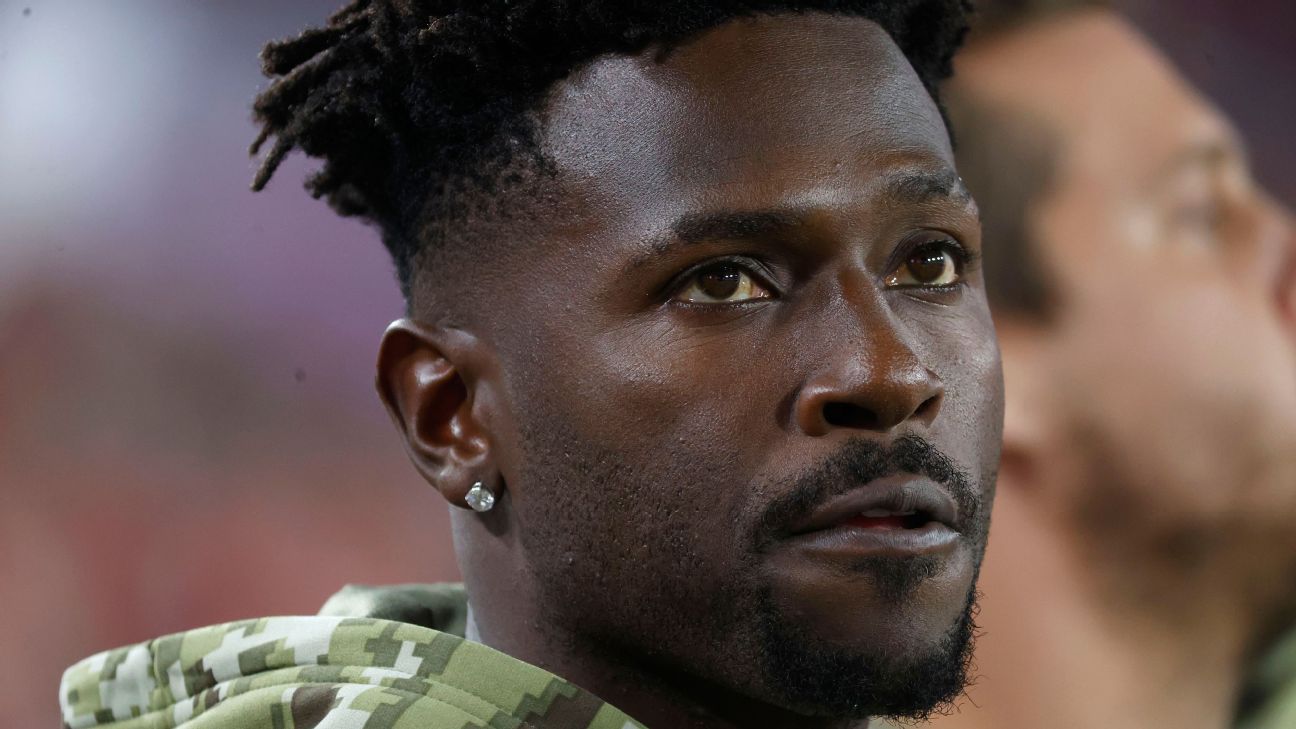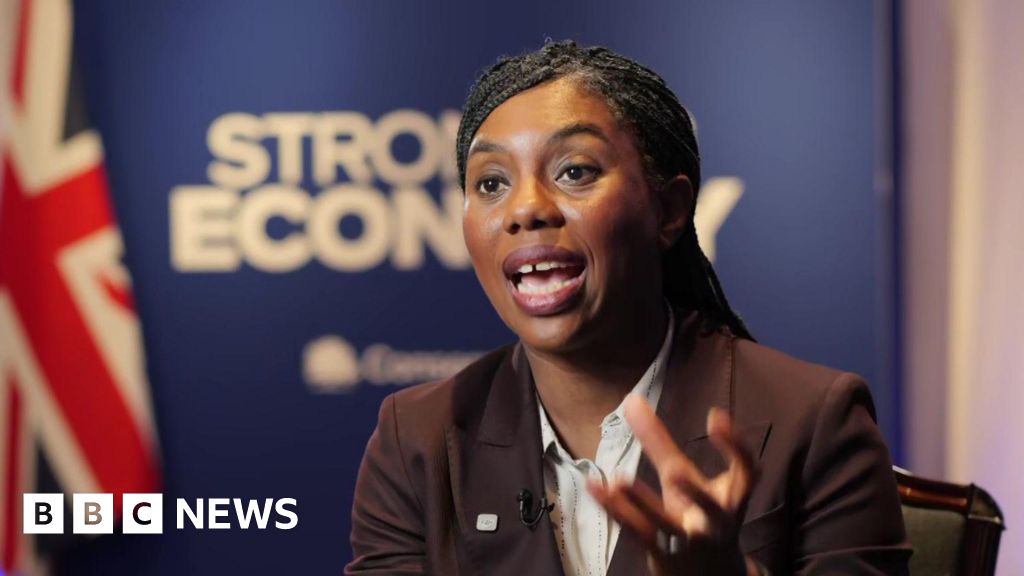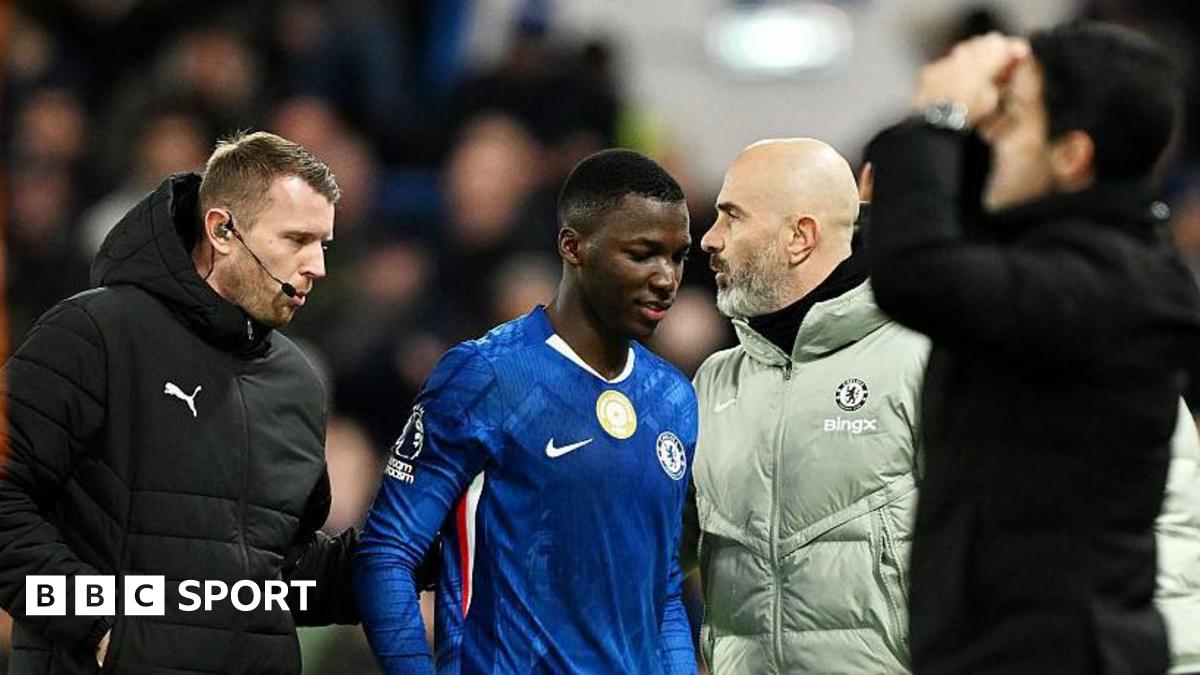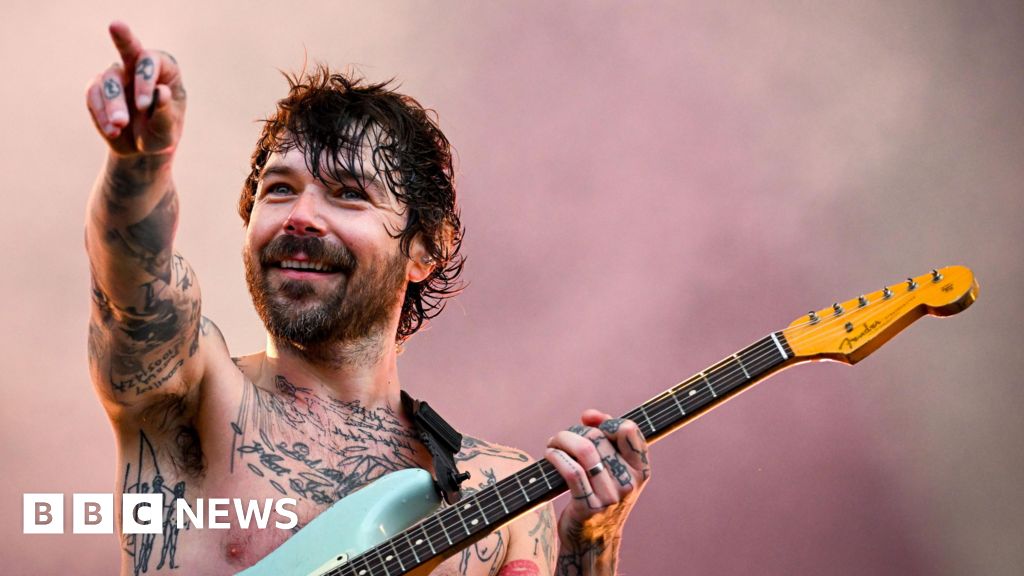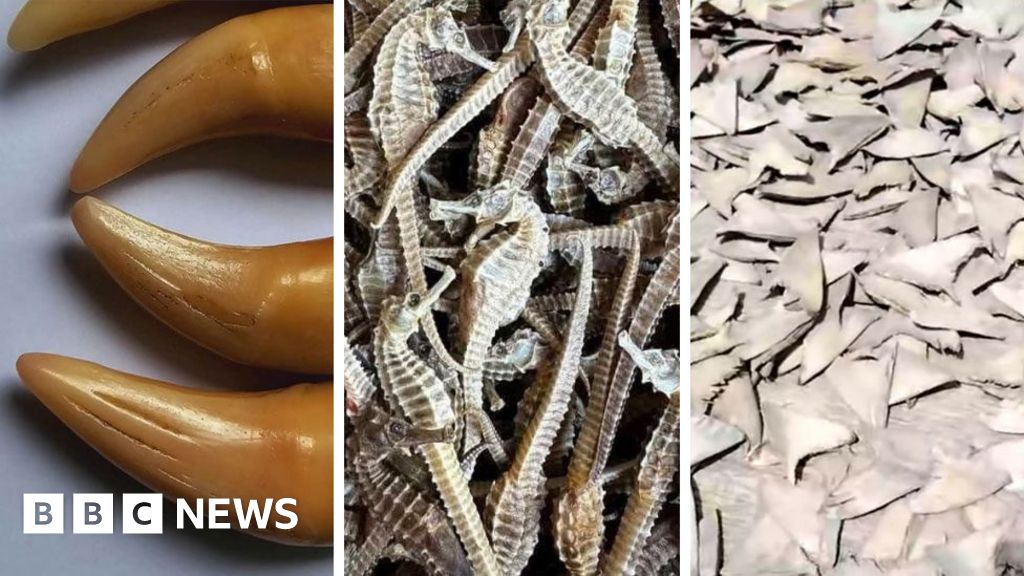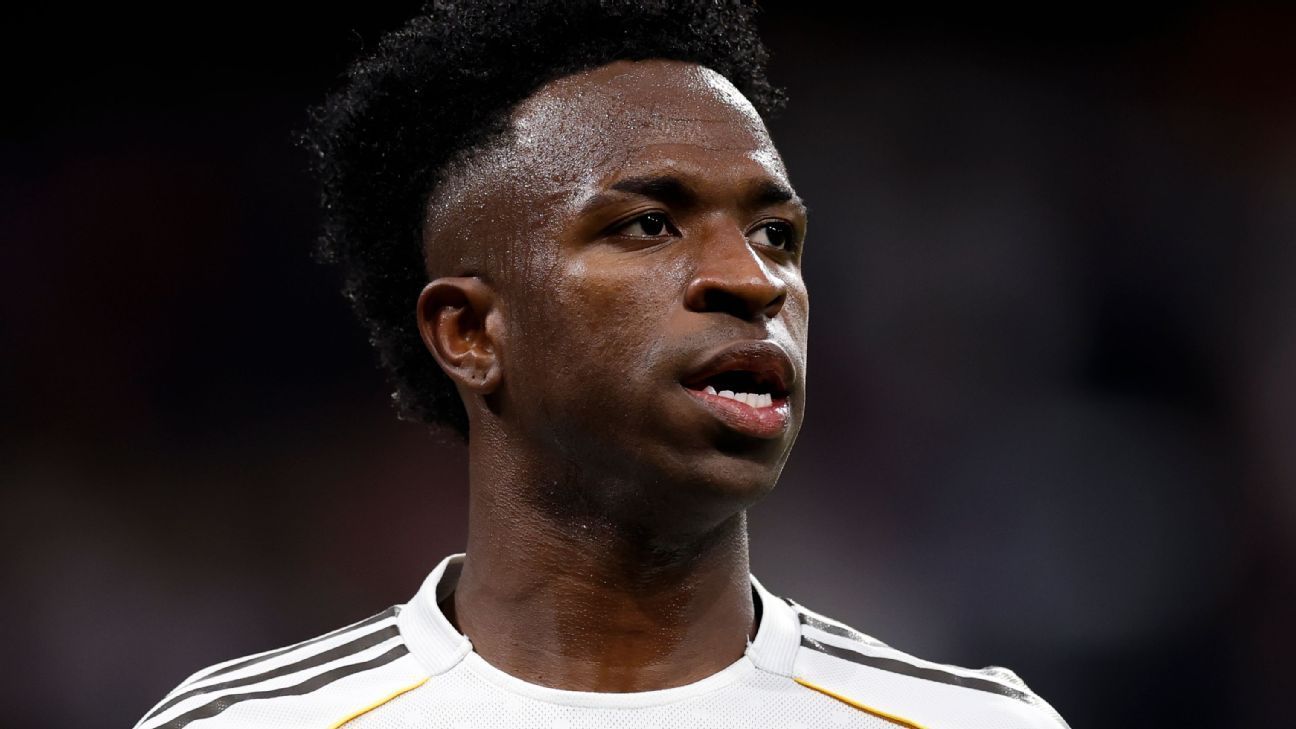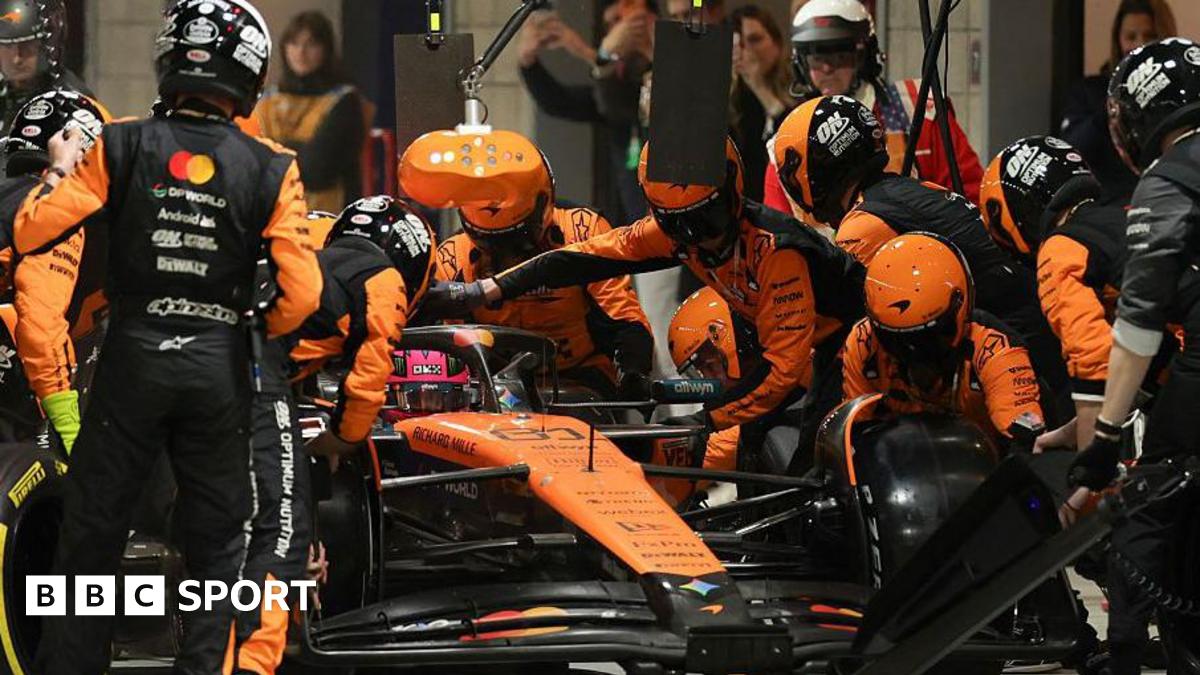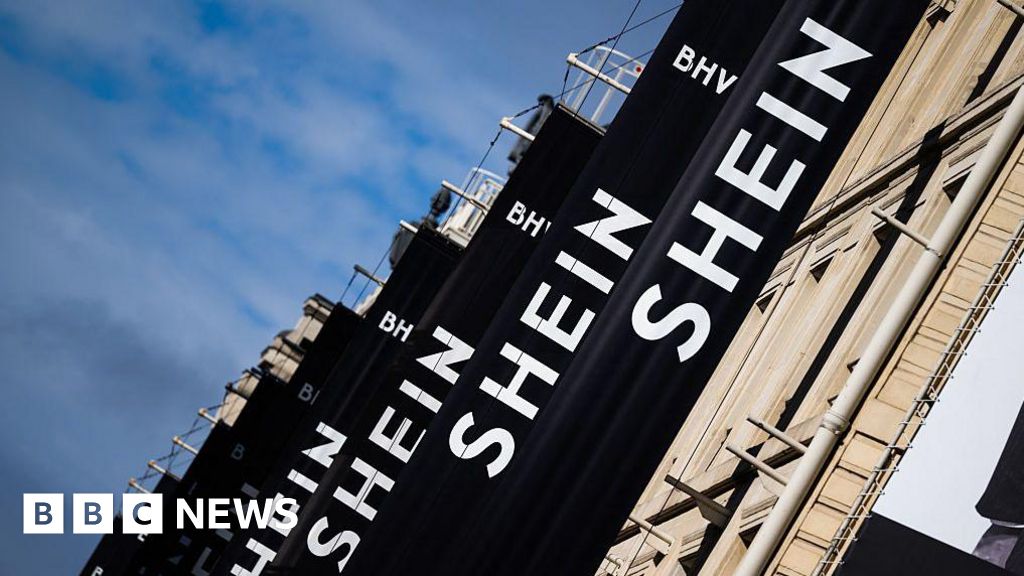
Tim KeownNov 7, 2025, 07:35 AM ET
- Senior Writer for ESPN The Magazine
- Columnist for ESPN.com
- Author of five books (3 NYT best-sellers)
ONE AFTERNOON THIS past summer in Sombor, Serbia, Nikola Jokić sat in an auto body shop and watched his friend Nemanja Pavkov work. They've been buddies forever, but this was the first time Jokić paid attention to how his friend makes a living. Pavkov was in constant motion, going from his phone to his customers in the front of his shop to the back, where he oversaw a paint job for one of Jokić's sulkies, the two-wheeled, chariot-like vehicles that attach to Jokić's horses as they race around his track down the street. It was all Jokić could do to keep up.
"Brother," Jokić began, a look of concern on his face, "you do this all day?"
"Yes, I do," Pavkov said. "From 7 to 3, and if there's more work, I will stay."
"Bro, that's hard," Jokić said.
Pavkov laughed, and a realization struck: This giant man in front of him, the three-time NBA MVP, has never been anything other than a basketball player.
"Bro, just keep playing basketball," Pavkov said. "You know what you do there, and now you know what we do here. You don't want to have a regular job."
There's a good chance you don't know a lot about Nikola Jokić, even though you might know a lot about a basketball player by that name. The 6-foot-11 Denver Nuggets center is a uniquely mysterious superstar, uninterested in the public side of fame, a man living outside our current hyperconnected moment. What you probably do know about him, especially if you are an American sports fan, is confined to what anybody with a television can see on a basketball court. That knowledge can be vast and rewarding. It could be enough.
But there is a place where he is anything but mysterious: Sombor, an unassuming town of 41,000 in northwest Serbia that appears to have been dropped by parachute into the surrounding fields of soybean and corn, the greens and browns of the landscape blending at the edges like a Rothko.
This is where Jokić was born and raised, and where he returns every offseason. Here, his world contracts; he is not the best basketball player in the world, but a local who can find everything he needs -- his work-in-progress gated compound with the three majestic homes for him and his two brothers, his parents' home, his horses, his gym, his outdoor basketball court -- within a 10-minute bike ride.
This is where he is fiercely protected, where he comes to be Nikola from Sombor and not The Joker or one of the more transformative players in the history of the NBA. The people of Sombor have an informal pact: no autographs or photographs -- "everybody already has those," says Isidor Rudić, Jokić's first basketball coach, with a dismissive wave of his hand -- and definitely no interruptions when he is out to dinner with his wife and two children, or having beers and fighting over the check at a kafana with his buddies.
We have to imagine all of this, though, because I am here in Sombor, and he is not. This, I was told in blunt terms, was the only way this could work. Nothing personal, just part of the pact: the people who know Jokić would not talk if he were here, and it's understood that the man himself will not speak regardless of location. (To hammer home the point, Jokić did not respond to an interview request made through the Nuggets.) The repeated recommendations that I not visit when Jokić is in town took on the hint of a vague warning, as if his presence emits a chemical essence, and everyone in Sombor would be looking over shoulders and around corners, wondering if he might appear on his bike, or on the patio of his favorite ice cream parlor (Gojko), or rise primordially out of the canal, an offshoot of the Danube, where he swims and relaxes at a spot called The Štrand.
He is not here, yet he is always here.
"His attitude is, 'Why do I need to explain everything?'" says Nemanja Krstić, a former teammate at Mega Baskets in Belgrade. "He would tell you, 'Why do I need to explain why I go to Sombor? This is my life. I'm a basketball player, sure, but I'm a normal person. If I have to explain everything about my life, why don't you?'"
Jokić doesn't speak, but here, he doesn't have to. Sombor speaks for him.
THE DIRT SPEAKS first.
It's swirling in the air in sifting wisps on a Saturday morning at Nikola Jokić's Dream Catcher hippodrome, where two horses pulling sulkies trot around the track with easy grace. One is ridden by one of Jokić's uncles, the other by one of his good friends. Neither man matches anyone's image of a jockey, thick with broad features, wearing jeans and flannel shirts. They exude a competent nonchalance, sitting expressionless on the tiny chariots, holding the reins in both hands, each with a burning cigarette hanging out of the right side of his mouth as if it's part of a uniform.
When Jokić is here, he is the one training the horses, his giant body curved into a sulky like a child in a jogging stroller. He mucks the stalls and tosses the bales of hay and grooms the track. They still talk about his return to Sombor after his first MVP season in 2021, when he got off the plane in Belgrade, drove 2½ hours to the track and immediately started shoveling manure. This is his track, the one Rudić used for basketball conditioning, the one his mother correctly predicted -- when Nikola was just 12, and despite a lack of available evidence -- that her son would purchase when he made the NBA. He talks to the horses and wraps his long arms around their necks. He cries when they win and consoles them when they lose. He finds homes for them when they're washed up, when their legs and body tire like any athlete. He pays for their upkeep in retirement and calls their new owners to find out how they're doing.
"The horses are where he's happiest," says Jokić's godfather and offseason conditioning coach, Nebojša Vagić. "With horse racing, he has so many emotions. He's passionate about it. With basketball, he's a disciplined animal. He's a hit man. When the game is over, it's 'Thank you very much.' He doesn't allow emotion into basketball. Horse racing is different. He heals himself with horse racing."
Case in point: Late July, one of his horses, Demon Dell'Est, won a major race in Subotica, Serbia, and Jokić responded by running onto the track, hugging the horse and jockey. Crying, he sprayed champagne on the horse (scaring the horse a little, it seemed) and behaved in a way he never has on the basketball court. It was almost too easy to contrast it with his reaction after the Nuggets won the NBA title in 2023, when he stood on the court and said, "It's good. It's good. The job is done, and we can go home now."
Vagić grew up with horses, too, on his grandfather's ranch outside Sombor, and whenever he visits Jokić's track, he visits the stables, tilting his head upward and then side to side, as if smelling something he can't quite pinpoint.
"I've been around horses all my life, but something is wrong here," Vagić says. "I can't smell the horses."
Jokić fumes: "What do you mean, 'Something is wrong?'"
"Oh, I don't know" -- here Vagić shrugs and throws his palms at the sky, as if it's nothing. "It's just ... just something isn't right."
Jokić sputters, his world crumbling. Despite himself, he can't help but take the bait.
"Ah, wait -- now I know what it is," Vagić tells Jokić. "Smells like perfume in here."
It's too much for Jokić. He knows Vagić is playing him, and he knows what he's hearing isn't true, but he falls for it every time.
Once Vagić has him, he can't stop.
"What kind of horseman are you? You're a f---ing city slicker. You've never even been to a proper stable."
Even in the retelling, Vagić's laugh echoes.
"He goes crazy!" Vagić howls. "Just crazy. He can't take it."
Vagić scrunches up his face and balls his fists in front of his chest to pantomime an angry Jokić. Vagić starts breathing loudly and shaking those fists like he's running a jackhammer. My God, how this man lives to taunt Jokić and then relive it. It's enough to keep him breathing every day.
"I can say anything -- any f---ing thing -- to him about basketball, and he just shrugs," he says. "But the horses? Ah, don't talk about the horses. He's crazy about the horses."
THE COURT SITS in a field beside Jokić's primary school, Dositej Obradović, named after an 18th-century writer and philosopher who is credited with establishing the country's first school of higher education. Obradović died 214 years ago, but the school remains in his name. In Serbia, history always prevails.
Jokić plays 3-on-3 on this court with his friends from home at least once a week when he's in Sombor. His visage looms above the court on a four-story mural on the side of the school, with the motivational phrase "Don't be afraid to fail big" written above his right shoulder. The image is almost too perfect: Jokić hovering over Sombor, playing under his watchful eye.
The court used to be cracked asphalt, with standard playground hoops. Jokić paid to remodel it: a synthetic playing surface, pro-style basket stanchions with Plexiglas-type backboards. The mural was on the wall before he won his first MVP after the 2020-21 season. He has three MVPs now, and his friends from home still wait for him to arrive in the offseason so they can judge for themselves.
"We must play every year so we can see his progress on our court," says Pavkov, a teammate from Jokić's youth basketball years at SO Koš. "We know he is strong, but we need to make sure he is getting better. When he comes here, he knows we are not going to let him win. He needs to put in the effort. We are all former basketball players, so we aren't going to injure him, you know? We are fouling him, though, and sometimes, he gets angry when we hit him a little too much. That's competition. We tell him, 'You might be a superstar in Denver, but here you are just one of us.'"
We wouldn't know about this court or Jokić's friends or the 3-on-3 games unless someone came from outside Sombor to document it. "You go to Sombor and, if you time it right, you can see him playing 3-on-3 with random guys," Krstić says. "He would never tell you that. He is a pure basketball player, but he won't go there to make a documentary where he says, 'Look at me playing with random guys, because I'm the purest guy.' He does it because it's what he loves to do."
It was here, on this court, that Pavkov saw his friend change. Nikola was 17 when he left Sombor for the first time to play for a club team in Novi Sad. He was out of shape but nonetheless a marvel -- "extremely slow legs and extremely fast arms," says Ljuba Aničić, his coach in Novi Sad -- and it didn't take Jokić long to earn a spot with Mega Baskets, then known as Mega Vizura, a developmental professional team in Belgrade.
It's funny what people remember. Pavkov can see it like it were yesterday. Jokić came home from Belgrade and played on that cracked asphalt, long before anyone could envision a four-story mural of this chubby young man, and he stood off to the side doing something outrageous: stretching.
Everyone at the court stopped. It got weirdly quiet.
Pavkov, his jaw slack, yelled:
"Bro, what are you doing?"
Jokić shrugged.
"Bro, I've got to stretch. It really helps."
Jokić might as well have shown up at the courts wearing a cravat. Sombor boys don't stretch. Sombor boys are the epitome of the country's greatest compliment: They have Serbian blood. They play basketball and shove and hurl endless streams of abuse at each other. Suddenly, after a few months in the big city, here's this fancy guy showing up and stretching his hamstrings before a run at the schoolyard.
"He stretched afterward, too," Pavkov says, his mind still reeling 13 years later. "Later, it hit me: Something is changing in his life. Maybe he is thinking he can play basketball for a long time. Maybe that's when he decided to get serious. That was a small thing, the stretching, but it stuck with me."
And maybe it confirmed something none of them considered: Their friend Nikola had a dream, and no amount of ridicule would keep him from realizing it.
TO UNDERSTAND NIKOLA Jokić, it's necessary to understand Serbia and all its many complications. Sombor speaks. Serbia booms.
I'm walking to my rental car outside a small Sombor hotel with Isidor Rudić, Jokić's youth coach, and my interpreter, Serbian basketball journalist and ex-player Marko Ljubomirović. Rudić has agreed to take us on a tour of Sombor on a Saturday morning that feels nearly perfect, clear and 80 degrees. As I open the driver's side door, I see Rudić has stopped halfway across a street whose name, Jugoslovenske Narodne Armije, translates to "the Yugoslav People's Army." Rudić is pointing at the car and speaking to Marko in Serbian. There is urgency in their voices, and Marko is holding his hands out in the universal symbol for "it's OK." After a brief exchange, Rudić seems to accept whatever Marko is telling him and gets in the front passenger seat.
Later, Marko tells me Isidor had a question before he got into the car: "What's this guy doing with a Croatian license plate?"
The animosity between Serbs and Croats dates back centuries. The roots are tangled but familiar: religion, nationalism, war and fierce efforts at independence. The fascist Croatian state, aligned with the Axis powers, presided over the deaths of hundreds of thousands of Serbs in World War II. The breakup of Yugoslavia in 1991 sparked a four-year war that ended with Croatia achieving independence and each side accusing the other of genocide. This innocent license plate might as well stand for the history of the world. Marko begins to give me a quick thumbnail version of the history between the two countries before stopping and saying, "Believe me, we don't have enough time." But to Rudić, it's clear that getting in this car on this street in this town, roughly 15 miles east of the Croatian border, could be problematic. Assured that the car was a rental from the Belgrade airport, and not one I chose, Rudić spent five hours taking us on a charming tour of every spot important to Jokić in Sombor.
"You should be OK," Marko assures me about the car, "but 10 years ago, every window in the car would have been bashed in if someone saw it on this street."
Most of the leafy streets of Sombor are lined with brutalist, Yugoslavian-era apartment buildings, each six or seven stories, one indistinguishable from the next, blocks of concrete planted in the dirt like trees. The concept was once envisioned as a sort of "Concrete Utopia" representing the collectivist ideals of socialism; the term is now used ironically. On a warm Saturday morning, clothes hang from railings along the small balconies, and the streets are filled with people cycling to the store or the river or the community pool.
Jokić and his two older brothers, Strahinja and Nemanja, grew up with their parents in one of these buildings one block over from the avenue named for the Yugoslav People's Army. It was a modest and unpretentious upbringing, the setting more like the high-density apartments of an urban American city than a small Serbian town. This setting, as much as anything in the bigger cities of Belgrade and Novi Sad, explains why legendary Serbian national team coach Svetislav Pešić, 76, motivates his players by telling them basketball can be an escape. "In America, they don't have to throw their bodies at the ball," he says, "but in Serbia, we do."
On a warm Saturday morning, clothes hang from railings along the apartments' small balconies, and graffiti -- a widespread form of expression throughout Serbia -- is splashed along the bottom floors of nearly every building. Much of the graffiti in Serbia is political: anti-NATO slogans stemming from the lingering resentment over the 1999 bombings; anti-corruption sentiment aimed at President Aleksandar Vučić; stencils of historical figures in profile. The artists insinuate themselves and their views into everyone's life.
There is one figure that is everywhere, sometimes in four or five places on a single building. Even in stencil, his bull neck, blunt features and Serbian military cap (šajkača) seem to extend off the walls, as if in 3D.
I ask Marko who this man is, and why he is so prominent, and he winces a bit before saying, "That is Ratko Mladić. The West considers him a war criminal, but to many in Serbia, he is a hero."
I feel the suction of these words in my stomach. Marko can tell. "Again," he says with a wave, "we don't have enough time." Mladić is widely known as the "Butcher of Bosnia," a convicted war criminal, now 83, serving a life sentence in The Hague for genocide and war crimes against humanity, the most horrific of which was the massacre of thousands of Muslim boys and men in Srebrenica in July 1995, when Nikola Jokić was 5 months old. In Serbia, Mladić is seen by many as a great liberator of the Orthodox Christian Serbs in the Republic of Srpska in the northeast corner of Bosnia and Herzegovina. After a remarkable 5½-year trial, Mladić was convicted by the International Criminal Tribunal for the former Yugoslavia in November 2017, early in Jokić's third NBA season. Jokić, like all young Serbians, has lived the vast majority of his life under this difficult history.
Everything here contains complication. Centuries of grudges and antagonism just below the surface. It lingers in the bombed-out buildings and bridges from the 1999 NATO strike, a response to the atrocities committed in Kosovo and overseen by Yugoslav President Slobodan Milošević, who died in a cell in The Hague as his trial for war crimes was nearing its end. In Belgrade, the Radio Television of Serbia complex was bombed, killing 16 civilian employees, and the hollowed-out building remains as a memorial and a rebuke. So does the defense ministry building a few blocks away, one side completely sheared off, the rebar from the walls sticking out like flyaway hairs. On the side of the building is a massive billboard for military enlistment.
On a humid Sunday morning in early August, we drive from Sombor to Belgrade through Novi Sad, the country's second-largest city and the place where Jokić first gained attention for the uniqueness of his talent. We stop and walk around the Sports and Business Center Vojvodina, where Jokić showed enough in a short time with KK Vojvodina to become a pro in Belgrade and learn the value of a well-stretched hamstring. Jokić didn't want to go to Novi Sad, despite the possibilities it presented. He wanted to stay in Sombor, with his family, friends and girlfriend Natalija, now his wife. "Before he agreed to come there, he asked how long he could stay and when he could leave," says Ljuba Aničić, then the coach at KK Vojvodina. "We made a deal that if he found a better club, he could go. It was strange to see in this young guy -- he can predict situations on the court. Not just recognize them, but predict them. This was another level."
We make one more stop in Novi Sad: the train station. On Nov. 1, 2024, a 115-foot roof canopy in front of the station collapsed, peeling from the building like bark from a tree, killing 16 people, including children. The station was built in 1964 and renovated from 2021 to 2024 by a consortium of companies. The government says that part of the building that collapsed was not a part of the renovation, but the account is in dispute. The 16 victims have become an enduring symbol of resistance throughout Serbia, and the makeshift memorial that hangs from a metal fence facing the station is haunting, 16 names and faces that have spurred a broad and enduring protest against the authoritarian Vučić administration for its lack of transparency and alleged corruption.
The night before we stood at the memorial, several hundred protesters lined up to march through the music festival in Sombor on Saturday night. They walked peacefully through and quietly, flanked by a few disinterested police officers. Hours earlier, it was reported that Siniša Jokić, one of Nikola's uncles and the former director for the Institute for the Protection of Cultural Monuments in Novi Sad, was arrested, along with 11 others, as part of an investigation into the renovation of the station.
At the station, a weekly silent protest took the form of a traffic blockade every Friday at 11:52 a.m., the time and day of the week of the collapse. Each protest lasted exactly 16 minutes.
MUCH OF JOKIĆ'S game takes place on tiptoe. He rebounds on his tiptoes, shoots 3s on his tiptoes, pump-fakes on his tiptoes. He backs down defenders -- "a back like a pigsty door," Vagić says admiringly -- with great deliberation, as if deciding how to best humiliate the man attempting to stop him. There are times -- maybe after he has grabbed a rebound with one hand, rotated his wrist and thrown an 85-foot pass to a teammate at the other rim, or maybe when he's posting up and whips the ball over his head to a cutting teammate he couldn't have possibly seen -- when it can feel as if the sport was invented just so we could watch him play it.
He controls the pace of every game, the slowest body on the court controlled by the fastest brain. His 2024-25 season was an MVP season in every respect but the award. The numbers, thoroughly ridiculous from any angle, somehow diminish the beauty of the achievement. For posterity: 29.6 points, 12.7 rebounds and 10.2 assists per game; the third player and first center to average a triple-double. He shot 57.6% from the field, 41.7% from three and 80% from the free-throw line.
There are so many moments of sheer magic. His 3-point shooting defies geometry and physics, the ball released from behind his head and straight into the air, like he's shooting out of a grain silo. He is 6-foot-11 and each of his dribbles seems to take up 6-foot-10 of that, and yet he can weave his way at slow-lane pace up and down and through and around defenders. And he does it all wearing an expression, or lack of expression, that indicates he is unimpressed by any of it.
"My man Nikola has a problem," Vagić says. "He realized a long time ago: People just don't get him. He gets quite frustrated. He can't talk to just anybody."
The story everyone at Mega in Belgrade tells is the one about the one-on-one drill between Jokić and longtime Serbian professional center Ratko Varda. Jokić posted up Varda and then turned to face him. He pump-faked, dribbled behind his back and then bounced the ball through Varda's legs before catching it on the other side for a layup. Varda was 34, Jokić 18, the oldest and one of the youngest on Mega's roster, and this was seen throughout the gym as a serious breach of etiquette.
As recounted in "Why So Serious?" Mike Singer's biography of Jokić, Varda's response after seeing Jokić for the first time was, "Who is that fat guy?" Varda grew so frustrated with Jokić's post mastery that soon after the between-the-legs humiliation, he caught Jokić with an elbow to the mouth that needed several stitches. But even the majestic and fierce Varda proved susceptible to Jokić's guileless charms, eventually becoming a trusted mentor.
Mega's coach at the time, the late Golden State Warriors assistant Dejan (Deki) Milojević, liked to run drills that created mismatches, like wing players going against post players one-on-one. It ran by playground rules: You score, you stay on offense. One practice, Jokić was matched against Krstić, a smooth but slender 6-9 small forward, who was two years older and far more accomplished than Jokić at the time.
"He kept scoring," Krstić told me. "Over and over -- three times, four times, six, seven."
Milojević checked Krstić's progress and grew angry.
"How is it possible he's beating you 8-0?" Milojević asks.
"I haven't even been on offense," Krstić mumbled.
The score was embarrassing enough, but having to admit he had not stopped Jokić even once was worse.
"Now, I'm pissed," Krstić says. "And my coach is pissed."
Milojević walked off and Jokić approached his teammate -- "like a friend," Krstić says -- and hugged him.
"It's OK," Jokić said, "but you cannot defend this."
If this was intended to soothe Krstić's sagging ego, it failed spectacularly.
"I got more pissed," Krstić says. "I'm thinking, 'This is arrogant.'"
Krstić tried to pull away, but Jokić -- remember, he's 17 years old -- held him by the shoulders and said, "Don't take this wrong, but what can you do? If you go low and really want to push me, I will just turn around and shoot off the backboard. If you go up and want to block the shot, I will go low, make one strong dribble and finish. You can do nothing about it."
Krstić, 13 years later, shakes his head in a combination of disgust and admiration.
"You cannot even get angry," he says. "It's just, this guy! His confidence was natural. He was like this from the start."
The problem, Vagić says, is that Jokić's mind does not process information and patterns individually. "He doesn't talk in single moves or tactics," Vagić says. "He thinks on a higher level, one step above. You have seen it in many situations: He is struggling to explain what he wants because the first time he tells you, he knows you don't understand. You don't see it the way he does, and you never will. He tries to simplify, but he can't. If he has CO2, he cannot make it simpler. He cannot make it just oxygen."
It led Jokić to question the training practices in Serbia and that led to the widespread belief that he was not only out of shape but lazy. As recently as 10 years ago, when Jokić won the Adriatic Basketball Association MVP with Mega at 20, coaching in Serbia was heavily influenced by the Cold War-era ideas of the Yugoslavs and Soviets.
"Discipline, discipline, discipline," says Dušan Ristić, who played with Jokić on the Serbian national team. "Putting team before individual. This goes back to the socialist countries, where it was more collectivist instead of individualist. Pass, pass, pass -- work for the best shot. We all grew up in this system. If we go to dinner or lunch, we all go at the same time, we all meet wearing the same color shirt."
Jokić chafed at the practices that ended with every player running lines for 15 minutes, holding a ball over their heads with both hands. If a player lowered the ball below the forehead, a whistle would blow and everyone would have to start over. "I used to run with Nikola," Ristić says, "and I would tell him, 'Let's just do this once and get it over with.'" Jokić wondered how this improved his post moves, or the point guard's ballhandling, or offensive chemistry.
"People said Jokić didn't want to work, but no," Nemanja Dangubić says. "He thought those exercises without a ball were pointless. He would say, 'I don't need this to build my character. I have my character. Let's play basketball.'"
Jokić was homesick in Belgrade, missing Natalija, who had left for a volleyball scholarship at Seminole State College in Oklahoma. He was missing the horses, and the Štrand, and the ice cream at Gojko. He was getting better, though, shedding the anonymity he brought with him to professional basketball. He was starting to get noticed, and then, one day after a particularly bad loss, despite several NBA and EuroLeague scouts in the gym to watch practice, Milojević's practice plan had one entry: 2½ straight hours of suicides, 85 in all.
Vagić, ever the philosopher, says, "We remember the rough seas, don't we? We remember the rough seas more than the calm seas. We don't want them to last very long, but rough seas are very good. Rough seas make good sailors."
The swells faded on the night of the NBA draft in 2014. Jokić was at home in Sombor. Dangubić, his Mega teammate and another draft hopeful, found a livestream in the middle of the night at his home in Belgrade. And so he, like everyone else, was watching a Taco Bell commercial touting the legendary Quesarito while assistant commissioner Mark Tatum was in New York announcing Jokić as the 11th pick of the second round, 41st overall.
Thirteen picks later, as Tatum walked to the podium, Dangubić thought, I know this isn't me because if they played a commercial when Nikola was picked, there's no way he's walking up there to say my name. But Tatum stood at the podium in New York during the early morning hours in Serbia and told the world the Sixers had made Dangubić the 54th pick -- and the third player from Mega -- in the draft.
Dangubić called Jokić later in the day to congratulate his teammate and share his excitement.
"Can you believe it?" Dangubić asked. "Did you see it?"
Jokić, the greatest draft pick in history, said:
"I was asleep."
EVEN THE SIDEWALKS speak.
Every morning, he is in Sombor; Jokić sends a 7 a.m. group text to Vagić and his conditioning team to announce that he is on his way to their morning workout. The texts are accompanied by Jokić's avatars: a gorilla and an ant. "He says he is strong as a gorilla," Vagić says, "and as persistent as an ant." The workouts are held in the gym that Jokić refurbished for KK Joker, the club teams Jokić previously sponsored and Rudić previously coached. He changes at an NBA-level locker with MVP across the top and an enlarged photograph of him hugging his brothers, both wearing "Joker MVP" T-shirts.
That's how the day starts, with Jokić riding his bike from his house to the gym for the workout and then to the hippodrome to see his horses and then to The Štrand to lie on the beach and float in the canal. He rides back home through the shaded streets of Sombor, past City Hall, a neoclassical marvel originally built in 1718. People wave and acknowledge him, but he remains otherwise unbothered. Maybe he will go out later to drink beer with his friends and attempt to buy all the drinks for the night, often to find Pavkov has gotten there first. "Part of Serbian pride," Pavkov says. "We acknowledge that he has a lot of money and can buy all he wants, but we don't like him because of his money."
(To offset Serbian pride, and perhaps assert some of his own, Jokić has been known to leave envelopes of cash randomly at his friends' homes or places of work when he knows they are not there, then deny it if asked.)
Vagić, Marko and I are sitting at an outside table in a kafana along the plaza in Sombor. Music from a nearby festival makes its way through the alleys and courtyards. Linden and boxelder trees shade everything within sight. The tables around us are filled, and nobody is fixed on their phones. They're talking and laughing and acting as if, remarkable as it seems, the people they're with are the ones deserving of their attention. "Why does Nikola always return here?" Vagić asks, repeating my question to him. He raises a hand and sweeps it across this -- all of it -- as if: enough said.
"I used to live in London," he says. "Time flies there. One day in Sombor lasts two or three days in London. We wake up in the morning, we go to practice. I take my son to kindergarten. After we practice, we go to the sauna, to the cold shower, to a restaurant to pick up food. We eat lunch and go to the swimming pool, stay there for an hour, rest a little bit, go to the bungalows at The Štrand. In the evening, we go out. In London, there's no way you can do half of that in two days. There, you travel to work for an hour, work eight to 12 hours, travel an hour home. Nothing's left of the day. Weeks go by and months go by and years go by, and you don't remember that much. One day I told my brother, 'I am returning to Sombor.'
"Because here? This is where you feel life 100 percent."
During one of the legs of his daily meanderings through Sombor one July morning, Jokić slowed as he approached a group of elderly women returning from the grocery store. They were not far from his boyhood apartment, and not far from the fancier apartment Jokić bought a few years ago and then gifted to a friend and former youth teammate who was going through a difficult time. These elderly Somborians were walking slowly and taking up the sidewalk, and he recognized one of them as Pavkov's grandmother. Jokić quietly announced his presence so as to not startle them.
"Are you all OK?" he asks. "Do you need anything?"
They shook their heads and thanked him for asking. The moment hangs in the air as he pedals off. The ladies return to formation, shopping bags in each arm.
"I can't believe that is Nikola," one of them said admiringly. "We just saw him playing on TV and now he is here."
Pavkov's grandmother scoffed at her friend's tone.
"So he's here, big deal," she said. "Nikola is always here. He's just one of us."

